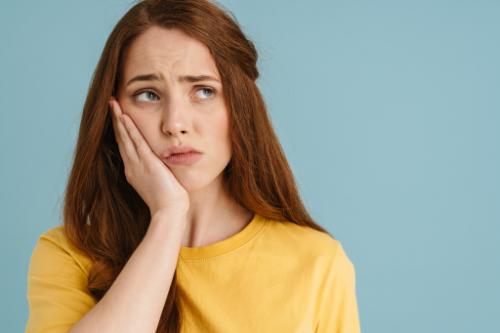After having a tooth extracted, you may have a lot of questions and concerns. One of these questions is the possibility of smoking after tooth extraction. For many people, smoking is a daily habit that they cannot go without. If you smoke, it’s important to take some precautions after having a tooth extracted.
Smoking after a tooth extraction can be risky. Chemicals in cigarette smoke can delay healing and cause complications, and nicotine reduces blood flow and oxygen levels in the body. Call Supreme Dentistry at 844.966.2333 to learn about aftercare or schedule a dental extraction. Our services for dental extractions in Houston, Texas, can help address your concerns.
How Long Should You Wait to Smoke After Getting a Tooth Pulled?
Dental professionals generally recommend waiting at least 72 hours before smoking after getting a tooth pulled. This suggestion is rooted in the need to allow your body sufficient time to heal and prevent complications. One of them is a dry socket—a painful condition that can occur when the blood clot at the extraction site dislodges.
Factors influencing recovery time can vary from person to person, including the complexity of the extraction, individual healing rates, and pre-existing health conditions. Smoking can hinder blood flow and introduce harmful chemicals that may disrupt the healing process. By following your dentist’s advice and abstaining from smoking, you significantly improve the likelihood of a smooth recovery and reduce the chance of complications.
The Risks of Smoking After Tooth Extraction
Smoking after tooth extraction poses serious risks to healing, making it crucial to consider potential complications. Inhaling creates suction in the mouth that can dislodge the important blood clot at the extraction site. This disruption can lead to a painful condition known as dry socket, characterized by intense pain due to exposed nerves and bone.
Here are some key risks associated with smoking post-extraction:
- Dry socket – A painful condition resulting from premature blood clot dislodging, which exposes bone and nerves.
- Prolonged healing time – Impaired blood circulation slows recovery, leading to extended discomfort.
- Increased infection risk – The chemicals in smoke can encourage an unhealthy environment for healing, raising the likelihood of infection.
- Pain and discomfort – Smoking can exacerbate pain levels, making the recovery experience more challenging and uncomfortable.
By understanding these risks, patients can make informed decisions promoting better healing and enhancing their dental health.
What Can You Do During the Waiting Period?
We understand that quitting smoking is not an easy feat. However, there are ways to ease the cravings and reduce your risk of complications during this period.
Here are some tips:
- Use nicotine replacement therapy – Talk to your doctor about using nicotine patches, gum, or lozenges to help satisfy your cravings without compromising recovery.
- Keep yourself busy – Distract yourself with activities such as reading, watching movies, or spending time with loved ones.
- Stay hydrated – Drinking plenty of water can help flush out toxins from the body and promote healing.
Not smoking for a few days can significantly benefit your long-term health and healing after a tooth extraction. Our team at Supreme Dentistry is here to support you during this crucial time and is always available to answer any questions or concerns. Proper oral health is vital for overall well-being,
Call Supreme Dentistry for Assistance with Dental Extractions
If you are questioning if you can smoke after a tooth extraction, the answer is best discussed with your dentist. The team at Supreme Dentistry in Houston, Texas, is always happy to provide guidance and support during recovery. With our expertise in dental extractions, we can help you navigate post-operative care instructions to ensure a smooth and comfortable recovery.
Don’t hesitate to reach out for any concerns or questions you may have about smoking after a tooth extraction. Contact us online or call us today at 844.966.2333 to schedule an appointment regarding your dental extraction.







